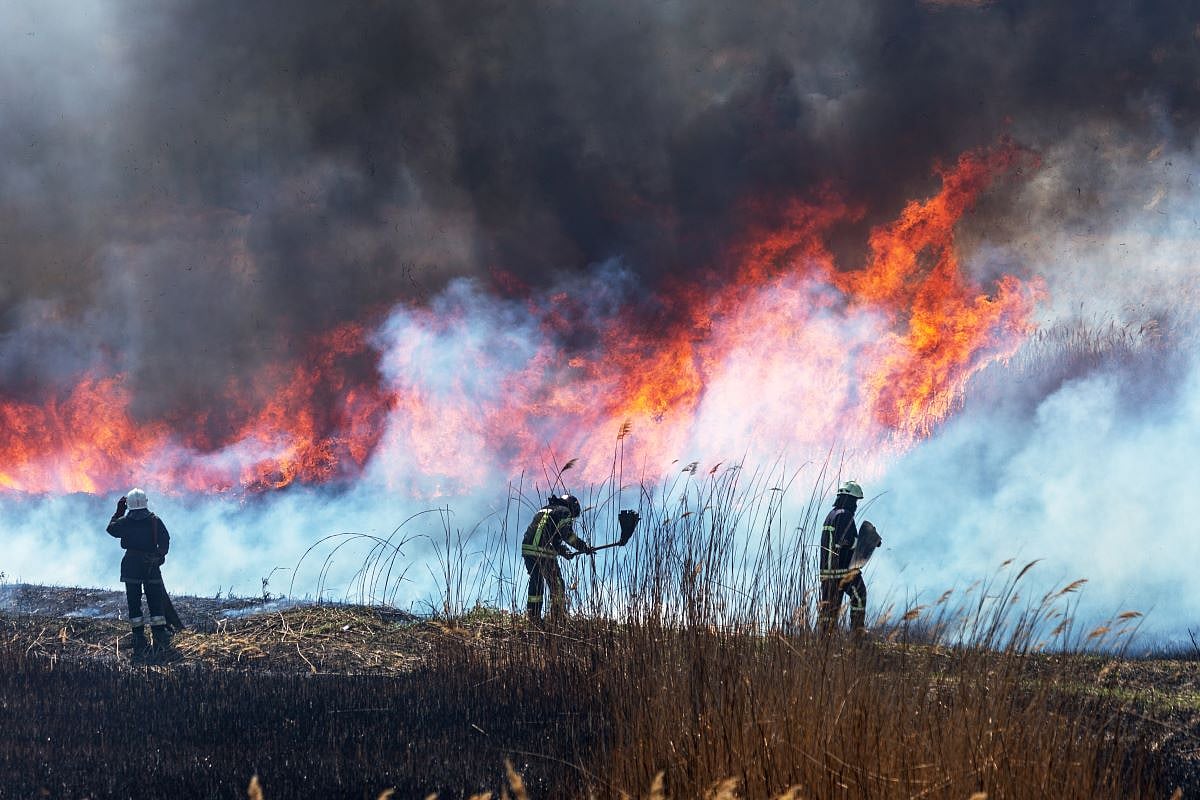We are administering the seasonal flu vaccine. Please call for appointments. Walk-Ins welcome!
Get Healthy!

- Dennis Thompson
- Posted May 30, 2025
Wildfire Smoke Threatens Heart, Lung Health For Months Afterward
Skies choked with wildfire smoke can affect people’s heart and lung health for up to three months afterwards, a new study says.
The particle pollution created by wildfires continues to increase people’s risk of hospitalization for months after the smoke clears, researchers reported May 28 in the journal Epidemiology.
“Even brief exposures from smaller fires that last only a few days can lead to long-lasting health effects,” lead researcher Yaguang Wei said in a news release. Wei is an assistant professor of environmental medicine at the Icahn School of Medicine at Mount Sinai in New York City.
Results also showed that risk increases as the amount of smoke pollution rises.
For the study, researchers analyzed hospitalization records for the residents of 15 states between 2006 and 2016 — Arizona, Colorado, Delaware, Georgia, Iowa, Kentucky, Michigan, Minnesota, North Carolina, New Jersey, New York, Oregon, Rhode Island, Washington and Wisconsin.
In all, the data included more than 13.7 million hospitalizations for heart diseases and nearly 8 million for respiratory conditions, researchers found.
Researchers found that people's risk of these hospitalizations increased within three months of exposure to wildfire smoke.
High blood pressure was the health condition most significantly impacted by wildfire smoke, researchers found. Others included heart disease, stroke, irregular heart rhythms, pneumonia, COPD and asthma.
These results show that preventing wildfires also will protect the health of the public, researchers said.
“Wildfires can burn for weeks to a month, and smoke (particle pollution) may linger in the air for extended periods, which may keep the air toxic even after a wildfire has ended,” Wei said.
“Current wildfire strategies are outdated and ineffective,” he added. “For example, prescribed fires can reduce wildfire risk but are mainly used to protect property rather than public health. Greater effort should be placed on wildfire management rather than relying solely on traditional air quality control strategies in response to the increasing wildfire activity.”
More information
The U.S. Centers for Disease Control and Prevention has more on the health effects of wildfire smoke.
SOURCE: Mount Sinai, news release, May 28, 2025








